SRP Progress in Research Webinar: Session IV — Chemical Exposures Across the Life Course
Sponsored by: NIEHS Superfund Research Program
This Progress in Research webinar series will showcase research from 11 new and renewed Multiproject Center grantees, funded by SRP in 2022. These awards were made as part of the P42 grant solicitation RFA-ES-20-014. In the four-part series, awardees will highlight their research projects, accomplishments, and next steps.
The Duke University SRP Center studies the neurodevelopmental health impacts of early-life exposures to polycyclic aromatic hydrocarbons and heavy metals. Center researchers seek to understand the impacts of multiple contaminant exposures in humans, elucidate neurotoxic mechanisms that occur from these co-exposures, and develop novel remediation and treatment strategies to protect health. The center will provide key data and information needed to improve public health guidance and environmental clean-up goals to effectively mitigate the negative health consequences of co-exposure to hazardous chemicals.
The University of Louisville SRP Center conducts state-of-the-art research on the toxicity of volatile organic compounds (VOCs) to determine how they affect the prevalence and severity of cardiometabolic diseases — obesity, diabetes, and cardiovascular disease — in exposed populations. Center scientists develop new methods and devices for quantifying VOC concentrations, offering precise yet low-cost measurements at hazardous waste sites. The team hopes that their findings will lead to rigorous evaluation and better understanding of the effects of these hazardous chemicals.
The Wayne State University SRP Center proposes an integrated, transdisciplinary framework, rooted in advanced environmental engineering techniques and biomedical research, to address human exposure routes and health risks from VOCs in urban areas. Center scientists study the relationship between VOC exposure and human health risks — for preterm birth and associated adverse health outcomes in particular — combined with new methods and technologies to assess, communicate, and reduce those health risks. The center hopes to improve public health interventions and have a positive impact on the well-being of affected communities.
To learn about and register for the other sessions in this webinar series, please see the SRP website.
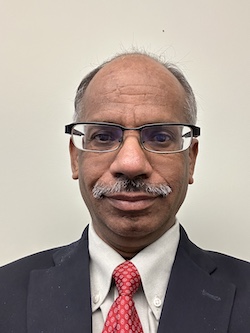 Sanjay Srivastava, Ph.D., University of Louisville (sanjay.srivastava@louisville.edu)
Sanjay Srivastava, Ph.D., University of Louisville (sanjay.srivastava@louisville.edu)
Sanjay Srivastava, Ph.D., is Professor of Medicine (Division of Environmental Medicine), Pharmacology & Toxicology, and Biochemistry & Molecular Biology and a Distinguished University Scholar at the University of Louisville where he also serves as the Director of the University of Louisville Superfund Research Center. The focus of his research team has been to elucidate cellular and molecular mechanisms of vascular inflammation and atherogenesis and examine how these processes are affected by environmental pollutants and tobacco products. His laboratory extensively uses mass spectroscopy, flow cytometry, cytomics, clinical chemistry analyses, pathology, and biochemical assays – having made several transgenic mice and rats to examine the effect of endogenous stimuli and xenobiotic on vascular functions and atherosclerosis. His research has been continuously supported by the National Institutes of Health for the last 20 years by multiple R01 grants. He also served as a project leader on several multi-investigator projects, including a NIEHS P01 on the cardiovascular toxicity of environmental aldehydes, an NIH P20 on Center of Excellence in Diabetes and Obesity Research at the University of Louisville; and an NIH P50 on American Heart Association Tobacco Regulatory Science and Addiction Center. He has served as a Chair or a member on more than 50 NIH Study Sections and as a member on the editorial board of Circulation Research.
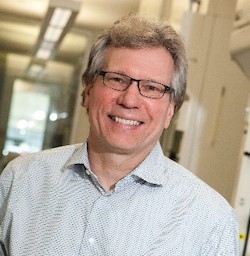 Jay Turner, D.Sc., Washington University – St. Louis (jrturner@wustl.edu)
Jay Turner, D.Sc., Washington University – St. Louis (jrturner@wustl.edu)
Jay Turner, D.Sc., is a Professor of Energy, Environmental and Chemical Engineering, the James McKelvey Professor of Engineering Education, Vice Dean for Education, and inaugural Head of the Engineering Education Division with the McKelvey School of Engineering at Washington University in St. Louis. His research primarily focuses on: air quality characterization with emphasis on field measurements, lab analysis and data analysis to support air quality planning and measurement, and also exposure studies; and green engineering. Current work addresses air pollutant exposures as a risk factor for neurodegenerative disease, near-road vegetative buffer impacts on downwind air quality, neighborhood-scale greening (vegetation) impacts on air quality, noise, and cardiovascular health, mobile platform measurements to quantify neighborhood- and urban-scale pollutant spatial variability, low-cost air quality and noise sensor evaluations and network deployments, environmental noise monitoring and apportionment to sources, ultrafine particle impacts from air freight hubs, human samples (blood, nails, hair) analysis as biomarkers for environmental exposures, and children's exposures to air pollution in Mongolia and Kyrgyzstan. Jay founded the Central Asian Universities Air Quality Knowledge Hub, funded by the U.S. Department of State through American Councils. He is a past president of the American Association for Aerosol Research (AAAR) and recently completed six years of service on the EPA's Science Advisory Board. Jay is a co-investigator with the University of Louisville's Superfund Research Center project “Platforms for Airborne VOCs Monitoring with Application to Surveillance, Source Apportionment, and Exposure Estimation”.
 John Fortner, Ph.D., Yale University (john.fortner@yale.edu)
John Fortner, Ph.D., Yale University (john.fortner@yale.edu)
John Fortner, Ph.D, is the PI for Project 4: Advancing VOC Treatment with Novel Materials and Processes under the University of Louisville Superfund Research and Training Program. He has over 15 years of experience in environmental engineering related research (nine plus years as a PI) – in particular, he has developed a successful research program focused on fundamental interfacial processes and advanced materials, typically in aqueous systems and at the nanoscale, as they relate to environmental-based health, security, and energy challenges. In addition to publishing >105 papers in high impact, field leading journals, which have been well received (>8600 citations, Google Scholar), he has also been awarded the Huber Prize by the American Society for Civil Engineers, an US NSF CAREER Award, the Sustainable Nanotechnology Organization (SNO) Emerging Investigator Award, an ACS Doctoral New Investigator Award (PRF), and the CH2M Hill / Association for Environmental Engineering and Science Professors (AEESP) Outstanding Doctoral Dissertation Award, among others. Since 2010, as a PI, Fortner has received significant research support from a number sources, including NSF, DOD, and USDA (NIFA). During this time, he has mentored and graduated ten PhD students, three M.S./M.E. students, and 40 undergraduate students through various lab-based programs – many of whom have go on to pursue graduate STEM degrees. In 2016, he was awarded the EECE Faculty Teaching Award and in 2017 was awarded the School of Engineering and Applied Science (SEAS) Dean's Teaching Award at Washington University in St. Louis, which is the top teaching award in the school and given to one faculty member per year.
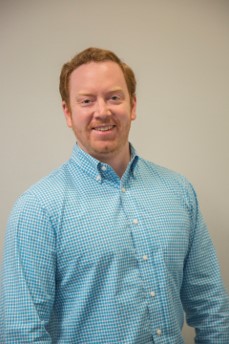 Brendan O'Leary, Ph.D., Wayne State University (ax9873@wayne.edu)
Brendan O'Leary, Ph.D., Wayne State University (ax9873@wayne.edu)
Dr. Brendan O'Leary, Ph.D., is a post-doctoral fellow at the CLEAR Center at Wayne State University in Detroit. Dr. O'Leary's research bridges multiple CLEAR projects. Currently, he is developing field screening techniques and numerical modeling approaches to understanding the subsurface transport of volatile organic compounds. Dr. O'Leary recently received a dual titled Ph.D. in civil engineering and urban sustainability at Wayne State University. He received his master's in geology at Wayne State University and an undergraduate degree in geology and environmental science from Allegheny College.
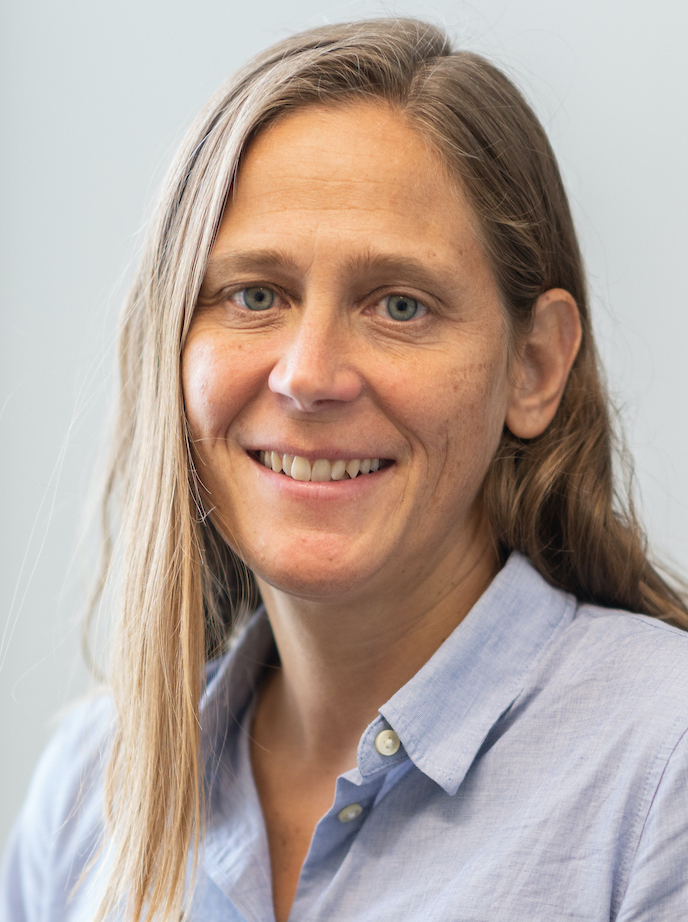 Tracie Baker, DVM, Ph.D., University of Florida (tracie.baker@ufl.edu)
Tracie Baker, DVM, Ph.D., University of Florida (tracie.baker@ufl.edu)
Dr. Tracie Baker, DVM, Ph.D., is an associate professor in the Department of Environmental and Global Health at the University of Florida and an adjunct professor in the Institute of Environmental Health Sciences and Department of Pharmacology at Wayne State University. Her research focuses on multidisciplinary, translational research that seeks to bridge and improve human, animal, and environmental health. Her research goal is to provide critical insights into developmentally-based and transgenerational, environmentally-induced disease with primary emphasis on endocrine disrupting compounds and contaminants of emerging concern. Dr. Baker is the PI of a biomedical project focused on evaluating mechanisms and biomarkers following developmental VOC exposure in zebrafish.
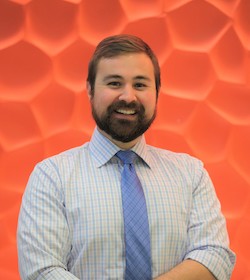 Michael Petriello, Ph.D., Wayne State University (michael.petriello@wayne.edu)
Michael Petriello, Ph.D., Wayne State University (michael.petriello@wayne.edu)
Dr. Mike Petriello, Ph.D., is an Assistant Professor in the Institute of Environmental Health Sciences and Department of Pharmacology at Wayne State University. He is the co-director of the RETCC and Co-I on a biomedical project focused on VOC exposure and maternal inflammation and fetal health in mice. Dr. Petriello came to Wayne State in 2019 and was most recently part of the University of Kentucky Superfund Center.
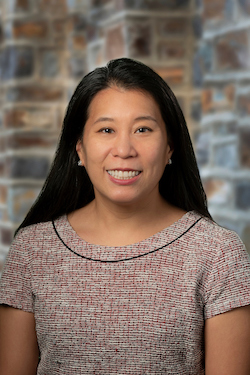 Heileen Hsu-Kim, Ph.D., Duke University (hsukim@duke.edu)
Heileen Hsu-Kim, Ph.D., Duke University (hsukim@duke.edu)
Heileen (Helen) Hsu-Kim, Ph.D., is a Professor of Civil & Environmental Engineering at Duke University. Prior to joining the Duke faculty, Dr. Hsu-Kim completed her B.S. degree in Environmental Engineering at MIT, and M.S./Ph.D. degrees in Environmental Engineering at UC-Berkeley. Dr. Hsu-Kim's expertise area is aquatic geochemistry and her research focuses on trace metals and their biogeochemical transformations in environmental systems. Recent work from Dr. Hsu-Kim's research team include studies mercury pollution in the environment, the impacts of artisanal gold mining in Latin America, new methods to quantify personal exposures to toxic chemicals in the ambient environment, and technologies to recover rare earth elements from wastes.
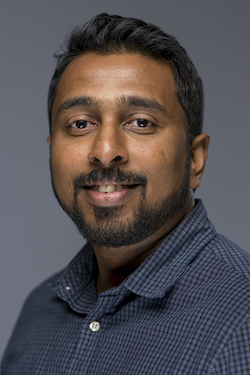 Nishad Jayasundara, Ph.D., Duke University (nj58@duke.edu)
Nishad Jayasundara, Ph.D., Duke University (nj58@duke.edu)
Nishad Jayasundara, Ph.D., is an assistant professor of Environmental Toxicology and Health at Duke University's Nicholas School of the Environment in North Carolina. He conducts research on the developmental and long-term health effects of exposure to environmental pollutants, particularly in the presence of multiple stressors such as heat stress and chemical mixtures. As part of the Duke Superfund Research Program, Dr. Jayasundara's current work focuses on the study of evolved resistance to polycyclic aromatic hydrocarbons (PAHs) in Atlantic killifish, Fundulus heteroclitus. Integrating functional genomics analyses and physiological assays, including germ-free fish experiments, he aims to uncover the role of the commensal microbiome in influencing PAH toxicity responses and evolved resistance. Dr. Jayasundara completed his postdoctoral research training at the Duke Superfund Research Center and received the Karen Wetterhahn Memorial award in 2017. He earned his BA in Human Ecology from the College of the Atlantic in Maine and his PhD in Biological Sciences from Stanford University in California.
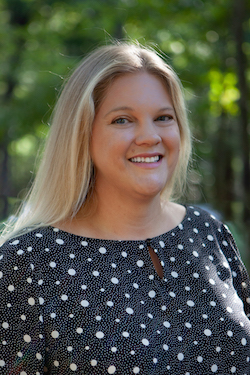 Kate Hoffman, Ph.D., Duke University (kate.hoffman@duke.edu)
Kate Hoffman, Ph.D., Duke University (kate.hoffman@duke.edu)
Kate Hoffman, Ph.D., is an environmental epidemiologist at the Duke University Superfund Research Center. Her research program is grounded in the developmental origins of health and disease framework and focuses on identifying modifiable environmental risk factors of pediatric diseases to improve public health. Her current projects include assessing early-life exposure to chemicals in indoor environments and investigating the impacts of contaminant exposures on early immune system function and neurodevelopment.
Moderator:
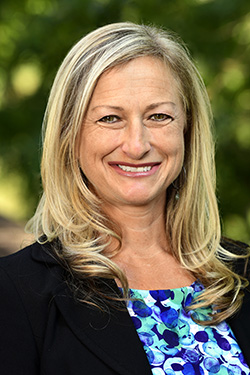 Heather F. Henry, Ph.D., Program Administrator, NIEHS Superfund Research Program (heather.henry@nih.gov)
Heather F. Henry, Ph.D., Program Administrator, NIEHS Superfund Research Program (heather.henry@nih.gov)
Heather Henry, Ph.D., is a health science administrator for the NIEHS where she oversees Superfund Research Program (SRP) grants that spans human health toxicology, risk assessment, detection technologies and remediation approaches. She provides guidance to potential applicants for SRP’s Multiproject Center Grants (P42s), Individual Research Grants (R01s), Small
Business / Technology Transfer Grants (R41-44; SBIR/STTR), and Conference Grants (R13). Heather studied plant-based environmental remediation
(phytoremediation) and ecological restoration as part of her doctoral work at the University of Cincinnati and as a Fulbright Postdoctoral Fellow at the University of Melbourne and University of Adelaide in Australia. She has been with NIEHS since 2006.
Webinar Slides and References:
-
 Slide Presentation for Duke University (5.15MB/PDF)
Slide Presentation for Duke University (5.15MB/PDF)
-
 Slide Presentation for University of Louisville (2.70MB/PDF)
Slide Presentation for University of Louisville (2.70MB/PDF)
-
 Slide Presentation for Wayne State University (7.74MB/PDF)
Slide Presentation for Wayne State University (7.74MB/PDF)
Additional Resources:
 NIEHS Superfund Research Program Fact Sheet
NIEHS Superfund Research Program Fact Sheet - NIEHS "Limited Competition: Superfund Hazardous Substance Research and Training Program (P42 Clinical Trial Optional)� funding opportunity, RFA-ES-23-001.
- View an archive of the SRP Funding Opportunities Webinar for RFA-ES-23-001 originally held May 15, 2023.
- Email srpinfo@mail.nih.gov to be added to the SRP Risk e-Learning listserv.
Thank you for participating in our webinar. We would like to receive any feedback you might have that would make this service more valuable.
Help & FAQs
- Frequently Asked Questions
- Content Questions?
Call Mali Velasco Delgado at 919-794-4708 or mali.velascodelgado@nih.gov - Technical Problems?
Leave us a comment - Cancel Your Registration
- My Participation Records
- CEU Credits and PDHs
Zoom Resources
Before Webinar Day
This seminar will be delivered through Zoom. Participants are encouraged to update to the latest version of the Zoom application for the best experience.
If you are unable to install the Zoom application, most functions will be available if you join just using a modern web browser such as Chrome, Edge or Firefox. We strongly encourage you to run the Zoom Meeting Test prior to attending this webinar. Technical support on the day of the webinar will be very limited and subject to significant delays.
Backup Conference Call
If you cannot participate using online audio, you may join the optional call in line. After checking in for the live event using the instructions listed below, you will see several options to participate. Please click the links in option 4 to follow along by phone and obtain the call in number. If you cannot access the phone number, you may request the call in line from the event moderator in the Q&A or send an email to Jean Balent at balent.jean@epa.gov
Click on "Join Webinar" at the top of this screen, enter your exact first and last name as you registered and enter the number of people attending at your location (including yourself). You should then be taken to the Zoom meeting room. Join with Zoom Application: For those joining with the Zoom application, you may be prompted to sign with a zoom account or join as a guest without signing in.
If joining as a guest, you will be prompted to enter your name and email address. Remember your name, image, video or voice may be visible to others in the live event. When done, click "Join" When it is time for the live event to start, the meeting host will admit you to the live Zoom meeting. Join via web browser (without the Zoom Application): For those joining with a web browser, you may close any pop ups prompting you to download the Zoom app. The next window will allow you to enter your name (first name and last name) and check the box that you are not a robot. Click the blue join button. You may also be asked to provide your email address before joining the room. Remember your name, image, video or voice may be visible to others in the live event. When done, click "Join" When it is time for the live event to start, the meeting host will admit you to the live Zoom meeting. You may need to periodically refresh the browser window to confirm if the host has admitted you. The presenters will control what slide you are viewing. You may submit questions online for the instructors to answer during the webinar by typing in the "Q&A" area. It is not necessary to wait until the question and answer periods to submit questions. At the end of the webinar you will be guided to our feedback form and links to additional resources, including the complete presentation. These links will remain active after the webinar. Provided for your convenience. Importing or accepting the invitation within this iCalendar file is not required, and declining the invitation does not cancel your registration. For additional information on iCalendar, please see our
iCalendar Help It is EPA's policy to make reasonable accommodation to persons with disabilities wishing to participate in the agency's programs and activities, pursuant to the Rehabilitation Act of 1973, 29 U.S.C. 791. Any request for accommodation should be made to at or , preferably one week or more in advance of the webinar, so that EPA will have sufficient time to process the request. EPA would welcome specific recommendations from requestors specifying the nature or type of accommodation needed. EPA welcomes specific recommendations from requestors specifying the nature or type of accommodation needed. Please note that CLU-IN provides both alternate phone call-in options and closed captioning for all webinars, and requests for these specific accommodations are not necessary.
Webinar Day, Checking In


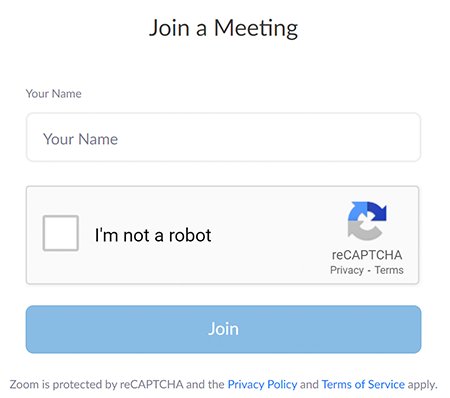
Moving Through Slides
Feedback & Links to Additional Resources
iCalendar File
Rehabilitation Act Notice for Reasonable Accommodation
Rehabilitation Act Notice for Reasonable Accommodation
It is EPA's policy to make reasonable accommodation to persons with disabilities wishing to participate in the agency's programs and activities, pursuant to the Rehabilitation Act of 1973, 29 U.S.C. 791. Any request for accommodation should be made to at or , preferably one week or more in advance of the webinar, so that EPA will have sufficient time to process the request. EPA would welcome specific recommendations from requestors specifying the nature or type of accommodation needed. EPA welcomes specific recommendations from requestors specifying the nature or type of accommodation needed. Please note that CLU-IN provides both alternate phone call-in options and closed captioning for all webinars, and requests for these specific accommodations are not necessary.
Webinar Recording
By participating in this CLU-IN webinar, you automatically agree to authorize recording of audio and visual content presented during this live event and consent to subsequent use of this recording in the public domain by the U.S. Environmental Protection Agency. This recording may include questions, comments and poll responses provided by you during the live event in addition to your name, voice, image or likeness. This recording will be made available after the conclusion of the live event as part of the CLU-IN webinar archives, and will remain available indefinitely. If you do not wish to consent to the recording, please do not join the live event, and contact Jean Balent at 202-566-0832 or balent.jean@epa.gov to discuss your concerns.
Content Disclaimer
This webinar is intended solely to provide information to the public. The views and opinions expressed as part of this webinar do not necessarily state or reflect those of the U.S. Environmental Protection Agency. It is not intended, nor can it be relied upon, to create any rights enforceable by any party in litigation with the United States, or to endorse the use of products or services provided by specific vendors. With respect to this webinar, neither the United States Government nor any of their employees, makes any warranty, express or implied, including the warranties of merchantability and fitness for a particular purpose, or assumes any legal liability or responsibility for the accuracy, completeness, or usefulness of any information, apparatus, product, or process disclosed, or represents that its use would not infringe privately owned rights.

